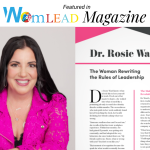For our second virtual book club, we convened to discuss what it takes to nurture a humanistic culture – at work (physically or virtually), on teams, and in our communities. If we want people to feel safe enough to show up as their authentic selves, we must show them that they are enough, just as they are. We give them space to work on becoming better versions of themselves.
Rehumanizing the Workplace provides valuable learnings and principles that honor what it means to be human and live and work in a VUCA (volatile, uncertain, complex, and ambiguous) world.

Here are some considerations from the collective wisdom of the book club community:
“Freedom with Parameters” is Relevant Now More Than Ever. Even before COVID-19, effective businesses were moving away from rigid hierarchies. Most influence, gifts, and talents in an organization do not align with the boxes on traditional organizational charts. More people are working remotely due to the pandemic. It is critically important to support the innate need for autonomy and what it takes for us to leverage our gifts to add value.
Even in Remote Teams, We Must Create Fearless Environments. The most effective teams are intentional about nurturing psychological safety. So, we must invite people to show up without armor, share their ideas, admit when they’re struggling, and ask for help. Including equipping people to self-lead, self-manage, and relearn what it means to be human; we need to support EVERYONE to show up as a leader!
Building Common Language That is Inclusive and Humanistic Matters. The ability to name our experiences and emotions is primary to processing things (which requires a fearless environment). Creating deliberate practices to build and nurture a common language to help unite and align people is critically important. Many of the words we habitually use can lead to people feeling devalued.
Thriving in a VUCA (and VUCA-Extreme) World Demands That We Upgrade our Inner Operating System. Thriving in a world where disruption is the norm requires supporting people wading in the messy middle. We must lean into the inherent discomfort of shifting our mindset (and our Inner Operating System that guides our actions). We must recognize what triggers us to be reactive, armored, and judgmental. Then, practice pausing—and rewrite the inner narrative that keeps us safe and small so we can maximize our positive impact on others. We must let go of any “stigma” we have regarding who we think we’re supposed to be and embrace who we are.
We Need to Recognize the Emotional Impact of Disruption. Trauma can have a significant impact; we all experience it and react to it differently. COVID-19 is sparking a variety of trauma responses in people. And, as we’re seeing, there are incredible disparities based on zip code and where people live. Now and in the future, we must look at how to nurture resilience in individuals and organizations.
We Must Shift Where We Look for Work Value. For people not used to working remotely, it can be challenging to reframe how we know if we’re adding value to our organization. Some people are stressed out trying to “prove” that they’re productive working at home. “Productivity” has shifted with many people balancing competing life priorities. Instead, we can focus on where we add value and are most effective. Even as physical businesses start to reopen, focusing more on effectiveness can help foster a sense of fulfillment and alignment with the organization’s purpose.
I hope these recaps are insightful for you. And remember that you can use the discussion guide to foster your learning or start your book club and share your insights with others.
Seize this opportunity to usher in a better, more human, and sustainable future. When we all choose to show up as leaders and influence positive change, remarkable things can happen! We’d love to hear your thoughts and insights as you read the book and leverage the principles to navigate during these times and plan for the future.
Stay HUMAN. Stay connected. Stay safe. Show Up as a Leader.







